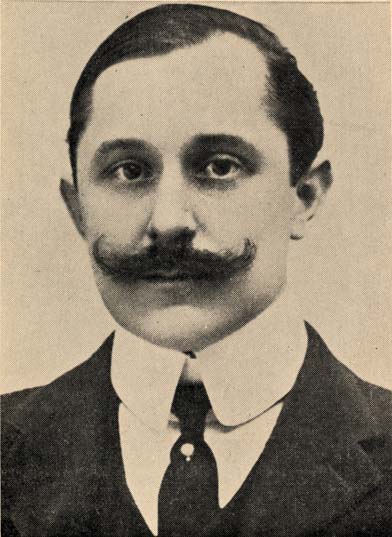William Clyde Fitch was the first American dramatist whose name was sufficiently well-known to attract people to the theater. Fitch spent ten of his boyhood years in Schenectady. Born in Elmira on May 2, 1865, son of a captain of the Union Army, he traveled with his parents for four years until Captain Fitch retired from the service and moved his family to this city.
At Amherst, from which he graduated in 1886, his activities were principally literary and dramatic. Had young Fitch followed his father's choice he would have become an architect, but instead he felt the need of independence and started out for New York to make his own way. While there he made his living writing jokes and verses for "Life" and "Puck," and tutoring small children. Before long he made his first trip abroad meeting many of the rising young writers of the day.
Returning to New York he produced a work which proved to be the first of his many triumphs. Richard Mansfield was at that time hunting for someone who could write a play around the character of Beau Brummell. Fitch was recommended and the actor and playwright met. While offering many valuable suggestions, Mansfield was very temperamental and nearly drove Fitch into a sanatorium before the play was completed. Even up to the final dress rehearsal the actor lacked confidence in the play, but after opening night it became the most popular play in Mansfield's repertory.
During the nineteen years between the first performance of "Beau Brummel" and his death in 1909, Clyde Fitch actually produced in the theater over fifty plays, many of them entirely original.
The year 1901 marked for Fitch the beginning of uninterrupted prosperity, with four of his plays, "Captain Jinks," "The Climbers," "Barbara Frietchie," and "Lover's Lane," all running in New York at the same time to packed theaters. He was unmistakably a man of the world and while disliking to be pointed out in public places he took a boyish delight in seeing his name in electric lights over the entrance of a theater. He wrote, not for fame and money, but because he loved his work. His great activity in writing and in personally attending to his productions told on his health and he began fighting a losing battle for his life. He died September 4, 1909.
Others of his better-known plays are "The City," "Nathan Hale," "The Truth," "Stubbornness of Geraldine," "Girl with the Green Eyes," "Her Own Way," "Woman in the Case," and "Straight Road."
